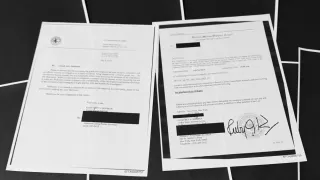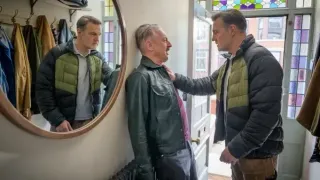November 17, 2023
Russian Authorities Ask Supreme Court to Declare the LGBTQ 'Movement' Extremist
READ TIME: 1 MIN.
The Russian Justice Ministry on Friday said it has filed a lawsuit with the nation's Supreme Court to outlaw the LGBTQ "international public movement" as extremist, the latest crippling blow against the country's already beleaguered LGBTQ community in the increasingly conservative country.
The ministry said in an online statement announcing the lawsuit that authorities have identified "signs and manifestations of extremist nature" in "the activities of the LGBT movement active" in Russia, including "incitement of social and religious discord." Russia's Supreme Court has scheduled a hearing to consider the lawsuit for Nov. 30, the ministry said.
It wasn't immediately clear what exactly the label would entail for LGBTQ people in Russia if the Supreme Court sides with the Justice Ministry. But the move in itself represents the latest, and by far the most drastic, step in the decade-long crackdown on gay rights in Russia unleashed under President Vladimir Putin, who has put "traditional family values" at the cornerstone of his rule.






